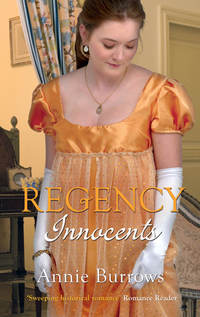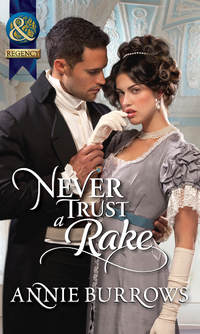
Полная версия
Regency Surrender: Passion And Rebellion
A peremptory knock on the door heralded Monsieur Le Brun’s entrance. He never waited for permission to enter a room these days. Since confessing that he was a French aristocrat, he’d dropped any pretence at servility.
‘We must speak,’ he said sternly. ‘About my Fenella. And Miss Sophie.’
She sighed and waved to the chair opposite. As a gentleman, he had at least waited until she indicated he might sit, she would give him that much credit.
‘What do you wish to say?’
‘I know that you do not like me. That to start with you would have done all in your power to prevent me marrying her if you had not seen it would cause the rift of permanence between you. But I tell you this—’ he leaned forwards, glaring at her ‘—if you had tried to keep us apart, or given me to lose my employ with you, I would have followed you both back to England and stolen her away in marriage.’
Oh, but that hurt. Here was this man, prepared to follow his lady love across the ocean—well, the English Channel at least—because Fenella was the kind of woman who deserved to find love. She was a good, kind-hearted creature. Not a cold unfeminine shrew without an ounce of trust in her nature. Fenella had trusted Gaston. Given him her heart along with her body. And this was her reward. This determined, dogged devotion.
If she’d been able to trust Nathan, he wouldn’t have walked away from her. They might all be going back to England together and arranging a double wedding.
And so what if he was only after her for her money? Or trying to recapture a fleeting moment of their youth when they’d had hope and trust, and belief in goodness? Did that really matter? It wasn’t just her money he liked. It wasn’t the memory of a girl he’d talked to and danced with, and argued with and made love to, either. It was her, as she was now. He’d enjoyed every minute they’d spent together. She knew he had.
But she’d pushed him away. Once too often.
‘I know,’ continued Monsieur Le Brun belligerently, ‘so you have no need to say it, that she deserves a better man than me. That I cannot provide for her in the way I would wish. But I have hope that one day the estate of my family will be restored and that then she will come to live with me here, in France, as my countess.’
A lump formed in her chest as she contrasted his determination to win Fenella against all obstacles, with Nathan’s swift defection.
‘And why, exactly,’ she said, tossing the balled-up scarf into an open trunk, ‘do you feel the need to tell me all this?’
He gripped the arms of the chair, his jaw working.
‘She tells me that you plan to move to Southampton to be near her.’
‘What of it?’
‘Only this. I am a proud man, mademoiselle, as you are well aware. Fenella is to be my wife. Sophie will be my daughter. Mine is now the task of providing for them and ensuring their happiness. I give leave to inform you I shall not tolerate your interference in the way I run my household or permit you to do anything that will make either of them question where their loyalty must now lie.’
‘I have no intention of interfering,’ she replied coldly. ‘But have you given any thought to how lonely Fenella is going to be while you are away, pursuing your dream of getting your château back? She will have nobody to support her. No family, no friends in that area. I didn’t think you disliked me so much that you would seriously wish to deprive Fenella of the one friend she does have.’
His scowl deepened. ‘This is what she has told me, too.’ He thrust his bony fingers through his hair, then slapped his hand down on the chair arm. ‘That only you stood by her in her darkest hour. For that, mademoiselle...’ he swallowed, as if something painful lodged in his throat ‘...I have to thank you,’ he bit out through gritted teeth. ‘And I do not wish for her to be left lonely. But...’
Amethyst held up her hand. ‘I don’t like you any more than you like me. The only thing upon which we will ever agree is that Fenella deserves better of both of us. I propose, for her sake, that we come to some kind of...truce.’
‘A truce?’
‘Yes. I will agree to keep my distance when you are at home. But I will be purchasing a property near enough so that I can support Fenella while you are away.’
‘That sounds reasonable. Though she will not like it, I think, if you never visit while I am home. She will want us to become friends...’
‘Oh, I have thought of the perfect way to calm her fears on that score. And that is to offer you employment.’
‘I beg your pardon?’
‘Well, unless you have a burning desire to carry on working as a courier to English tourists, I had thought you might prefer a permanent position within George Holdings. As my French agent. There are bound to be outlets for my wares wherever in France you need to travel in pursuit of your quest, so you can fit in my business around your own agenda. It will surely be better for you if you don’t have to dance attendance on demanding tourists all day long?’
‘It would, but...’
‘I know I haven’t been an easy person to work for, but I’ve been most impressed by your tireless energy and efficiency, not to mention your patience. Besides, Fenella loves you...’
‘I do not want you to give me work as a favour to my wife! We both know that I have had very little success in procuring for you the new outlets for your goods.’
‘On the contrary, you managed to secure two contracts, under almost impossible conditions.’ Whilst acting as tour guide, and sweeping Fenella off her feet. ‘I propose paying you a small basic wage and meeting your expenses while you are travelling in France. Plus a percentage of any profits my companies make through your efforts.’
‘You would really put me in a position of such trust?’
‘Without hesitation. You have plenty of sterling qualities. Not least of which is your devotion to Fenella.’
‘I...I suppose I could say the same of you,’ he said grudgingly. Then his mouth twisted into a wry grimace. ‘I think since I have seen what that pig of a man has done to you—both now and when you were just a girl—that you think you have cause to distrust men. And that is perhaps why you have treated me as though I am a worm. And also...you wish not to see your friend hurt, the way you have been hurt.’
‘Who says I have been hurt?’
He shook his head reprovingly. ‘Mademoiselle, ever since he came here to give you the congé, you have been a shadow of yourself. You do not eat. You do not speak. And most telling of all, you do not assert your will over mine.’
It was all true. There didn’t seem to be any point in anything. It was as if a grey pall hung over her now, which she couldn’t ever see lifting.
‘Do not,’ said Monsieur Le Brun in alarm, ‘be so upset. I did not mean to make you weep. Merde!’ He pulled out a handkerchief and thrust it at her. Only then did she realise that tears were streaming down her cheeks.
‘It is not your fault,’ she said through his handkerchief as she blew her nose.
‘Fenella will never forgive me if she learns I have made you cry. Please cease.’
‘I just told you, you have not made me cry. No man will make me cry. I won’t let any of you,’ she said defiantly, though tears still streamed down her cheeks.
‘Now go away,’ she said, burying her face in his handkerchief. ‘And leave me...alone.’
Alone. As she would be now for the rest of her life.
* * *
She had travelled back to England in the second carriage with Sophie, her nurse, Francine, and the new French maid. She’d realised she would much rather hold the child’s head over the bowl as she vomited than watch her former companion and courier makings sheep’s eyes at each other all the way to Calais.
Both she and Monsieur Le Brun were on their best behaviour whenever Fenella was watching, though she couldn’t resist taking one last swipe at his masculine pride by insisting on paying all the wedding expenses and then making it as lavish as she possibly could. She met the groom’s objections by pointing out that Fenella had been robbed of a society wedding the first time round and she deserved the best.
There was more than a hint of retaliation in the way he promptly invited a veritable crowd of remarkably well-connected people to both the church and the wedding breakfast, since most of them looked down their aristocratic noses at her. But she shrugged it off. She’d been mean to him, so...
Or perhaps it wasn’t anything to do with her at all. Perhaps he really was responding to what she’d said about Fenella deserving a society wedding and was just doing his utmost to provide it?
* * *
Fenella had thoroughly enjoyed her day, which was the main thing. Though she was very tearful when it came time to part on the morning after.
‘I hate to think of you going back to Stanton Basset all on your own,’ she said.
‘I do not plan to stay for very long. I will just see that my aunt’s house is cleared for sale, or rent, and then come to join you. Not in your marital home, I hasten to add,’ she put in when Monsieur Le Brun looked distinctly alarmed. ‘But in some nearby hotel, while I view the properties on offer.’
‘Still, I don’t like the thought of you travelling all over the country by yourself,’ persisted Fenella.
‘I do not like it myself,’ put in Monsieur Le Brun, to her surprise. ‘You hired me to act as your courier from Stanton Basset to Paris and home. London is not your home.’
‘If you think I can stomach the sight of you two fawning all over each other in a closed carriage for the next three days you are very much mistaken,’ she retorted. ‘And I am quite certain that the last thing you want is a former employer joining you on your bride trip.’
The newly married couple blushed.
‘Besides, it is not as if I shall be travelling alone. I have employed a woman to act as escort and chaperon.’
Fenella and Monsieur Le Brun both glanced across the inn yard at the nondescript wisp of a woman Amethyst had hired from an agency not two days earlier.
‘She doesn’t look as if she will provide you with much company, though,’ said Fenella with an anxious frown.
‘Believe me, I shall not pine for conversation after that last trip with the two French maids jabbering away incessantly like a pair of magpies. Peace and quiet will suit me very well.’
‘Ma chère, Mademoiselle Dalby has clearly made up her mind. Have you ever been able to sway her, once she has done so?’
With one arm round Fenella’s waist, and Sophie’s little hand clasped in his own, Monsieur Le Brun firmly ushered his new little family into the coach that stood waiting for them.
A swell of resentment surged through Amethyst as she boarded her own carriage. If it wasn’t for him, they would all be going home together. She would still be smarting from losing Nathan, but at least she would have...
She shook her head, angry at herself. When had it ever done her any good relying on others? She was stronger than this.
She consoled herself, for the first few miles of her own journey, with visions of Monsieur Le Brun’s discomfort, shut up with a child whose reaction to the bouncing and swaying of their coach was going to be inevitable. Served him right for breaking up her happy home!
Except...Fenella loved him. And if he felt anything like she did about those two, he wouldn’t be finding it a trial. Caring for each other was part of being a family.
Or it should be. It was what she’d always wanted, deep down. She knew herself so much better since being with Nathan. He’d let her express her opinions, rather than trying to form them, and the more she’d done so, the more she understood what she really thought and felt about everything.
And she’d seen that, all her life, she had just wanted to have somebody love her. It was what had made her strive so hard to please both her parents, and then her aunt.
And what had made her fall into Nathan’s bed. It hadn’t been just adventure she craved. It wasn’t just about rebelling and proving that a woman could do anything a man could do. She’d wanted him to love her. Yet when he’d claimed he did, she hadn’t been able to believe it. Why should he love her? Nobody else ever had. They’d made her believe there was something intrinsically unlovable about her. And so she’d pretended she didn’t care. Hardened herself against hurt. Pushed people away before they had a chance to make so much as the slightest dent in her defences.
But it did hurt, knowing that Nathan didn’t love her, any more than anyone else ever had.
She slumped into the squabs, that grey pall making the mere act of breathing feel like an effort.
England was such a damp and dreary place. People scuttled about, heads bowed into the drizzle, as though they were the nation that had just been defeated, rather than the French.
Or was it just the air of defeat hanging over Amethyst that made the rest of the world look so bleak?
The woman she’d hired from an agency to lend her respectability on the journey very soon gave up attempting to converse with her taciturn employer. And no doubt gave thanks, reflected Amethyst on one of the stops to change horses, that her employment was only temporary.
* * *
Amethyst gave her a generous tip when at last they reached their destination.
‘I hope your return trip is more pleasant,’ she said to the startled woman. ‘It couldn’t have been very comfortable for you, having to travel so far with an employer who had only roused from her depression to make acid remarks about the deficiencies of any stray male unfortunate enough to cross her path,’ she said self-deprecatingly.
‘I...I don’t like men any more than you, madam,’ said the woman, with just the hint of a sympathetic smile, before dropping a curtsy and scuttling off towards the town square and the coaching inn where she would rest overnight before taking the stage back to London the next morning. Amethyst half-wished she was going with her. She had to brace herself before walking up the path to Aunt Georgie’s front door. After the glorious freedom she’d known on her travels, setting foot inside the house would be rather like putting on a stiffly starched collar. The minute she crossed the threshold, she got the urge to fling open all the windows. Only, since it was raining, all it would achieve would be to make her cold, as well as depressed.
‘There is a fire in the morning room, Miss Dalby,’ said her butler, a long-suffering individual she’d inherited from her aunt along with the house.
‘Thank you, Adams,’ she said, suddenly wondering why he’d borne the brunt of her aunt’s displeasure for so many years. He wasn’t paid much more than the average for his position. ‘But I would rather take tea in the study.’
‘Of course. I had the fire lit in there, too, thinking you might like to cast your eye over the correspondence awaiting you.’
‘That was very thoughtful of you,’ she said with real gratitude. ‘Thank you.’
He dipped his head in a kind of truncated bow, swiftly, but not before Amethyst had caught a startled look on his face. Good grief, had she really been so lacking in manners towards the man that a mere ‘thank you’ could surprise him?
She went to the study while Adams made his stately way in the other direction to see to the tea things. There was quite a pile of correspondence piled up on her desk. Hours’ worth of work.
She sighed and went to the window, which looked out over her garden. She hadn’t come in here because she was keen to put her nose back to the grindstone. It was just that she’d made this room her own, since Aunt Georgie’s death. She’d moved the desk so she could see out over the gardens by merely lifting her head. She’d had the walls painted a light, creamy colour, pretty new curtains hung and even put up some watercolours she’d purchased herself, whereas she hadn’t got round to doing anything about the gloom that pervaded the morning room. And she’d got the strangest feeling that the room would disapprove of her jaunt to the Continent. That it would gloat at her, too. What good had it done her to go abroad? The solid, heavy furniture would imply. Or buying new clothes, and going dancing and taking a lover? She’d still ended up having to come back alone. More alone than before, since even Fenella had abandoned her. Fenella, the nearest thing to a friend she’d ever had.
And yet...all those ledgers lining the shelves and the correspondence stacked neatly on the desk reminded her that her life still had some purpose. Within those reports lay the livelihood of hundreds of workers. The decisions she made regarding them would affect the prosperity of swathes of Lancashire and the Midlands.
It was probably coincidence that at that moment the sun managed to break through the heavy pall of cloud hanging over the scenery, making the damp shrubbery glisten as though covered with hundreds of tiny jewels. At that exact same moment Amethyst saw a ray of light of her own.
Towards the end of her aunt’s life she’d begun to liken her to a dragon, zealously guarding her hoard. She’d accumulated great piles of money simply for the sake of having it. But it had never made her happy. On the contrary, she’d grown increasingly fearful that someone would find out about it, then try to steal it from her, one way or another.
She turned round and stared at the piles of paperwork lying on her desk. She didn’t need to follow blindly in Aunt Georgie’s footsteps. She didn’t need to carry on amassing more and more wealth, for its own sake. She might remain a spinster, secretly running a vast financial empire, but she could do it in her own way. She’d already made a start, she realised, by expanding into France, which would mean increasing output in the manufactories she had, rather than extracting as much profit from one, in order to raise capital to buy the next one, the way her aunt had. Which meant she could start looking after the workers a bit better. She could found schools for the workers’ children and organise some kind of welfare fund for the sick, and—
Adams interrupted her train of thought by knocking on the door and informing her that she had a visitor.
‘Already?’
‘Mrs Podmore,’ he said as though that explained it.
‘Oh, dear lord,’ she groaned, laying her forehead against the window.
‘Shall I tell her you are too tired to receive anyone just yet,’ ventured Adams, ‘having so recently returned from such a long journey?’
‘It is tempting, but, no.’ She sighed. ‘The wretched woman will only call back, again and again, until she’s said whatever it is she wants to say. Or ambush me in the high street, or on the way back from church. So I may as well get it over with by taking the tea you were going to bring me, with her.’
If Adams was surprised to be on the receiving end of such a frank speech, he betrayed no sign of it. Merely nodded his head and offered to take the tray she’d been awaiting into the front parlour.
Into which she had not wanted to go, not just yet.
Two birds with one stone, Amethyst muttered to herself as she opened the door to the formal gloom of the parlour and walked in.
‘My dear, is it true?’
Trust Mrs Podmore to ignore the convention of commencing a visit with polite enquiries after her health, and so on, and launch straight into the matter that really interested her.
‘I heard that dreadful Mountsorrel woman has run off and left you. After all you have done for her. The ingrate!’
‘How on earth has such a rumour managed to reach your ears?’ Amethyst went to the chair opposite Mrs Podmore and reached for the teapot. ‘I have only been back five minutes!’
‘But she hasn’t come back with you, has she? I had it from...the most impeccable source that it was quite another person who alighted from the carriage with you outside your doorstep earlier. A quite inferior-looking person—yes, thank you, I will have one of these cherry slices—who promptly got on the very next stage back to London. You simply must have your cook give me the receipt for my cook. Not that she will make them half so moist, I dare swear. She will leave everything baking until it’s done to a crisp. But is it true?’
Though Amethyst was sorely tempted to say she could not possibly know if it was true that her cook burned everything to a crisp, she refrained. She knew exactly what Mrs Podmore wanted to find out.
Which was what had happened to Fenella.
‘The rumour that Mrs Mountsorrel has run off? Absolutely not.’
‘But she is not here, is she?’ Mrs Podmore looked round the room as though she might spy Fenella lurking in some shadowy corner, the way she’d always done when one of the doyennes of Stanton Basset had come calling.
‘Indeed not,’ replied Amethyst calmly, adding a dash of milk to both their cups.
‘Well, where is she, then? Not—’ Mrs Podmore sat forward, her eyes brightening ‘—not suffered some terrible accident, I hope?’
‘Oh, no,’ replied Amethyst, dashing Mrs Podmore’s hopes. ‘In fact, quite the reverse.’
‘The reverse?’
Amethyst took a sip of tea, deliberately leaving her visitor trying to work out what could be the reverse of a terrible accident. Only when Mrs Podmore’s face betrayed a state of complete bewilderment did she relent.
‘She has remarried.’
‘No!’
‘Yes. The Comte de Quatre Terres de...’ She wrinkled her brow in concentration. How irritating. The one time his titles might have come in useful, she could only recall a small part of one of them. ‘Well, I forget quite where. A French count, anyway.’
‘Well, I never.’ Mrs Podmore set her cup down in its saucer with a snap. ‘However did a person like her come to rub shoulders with a French count?’
‘Oh, didn’t you know?’ She widened her eyes in mock surprise. ‘Fenella is very well born.’ Though she hadn’t welcomed Mrs Podmore’s visit, now the wretched woman was here, she might as well put her to good use. To set the record straight.
‘She made a poor choice of husband the first time round, it is true. A man who left her destitute and estranged from her family. But she is exactly the kind of person who should be rubbing shoulders with a French count. Not that we knew he was anything of the sort when we met him. I...’
She’d been about to say she’d hired Monsieur Le Brun as their courier. But once Mrs Podmore knew of it, it would be all over Stanton Basset, and from there the county, and who knew where else, within days. And he hadn’t wanted anyone to know about his mission. He’d taken her into his confidence. And she didn’t, she realised, want to break faith with him. It would be...well, a perfectly horrid thing to do. He’d probably exaggerated the danger he might be in, should anyone know who he really was, but she couldn’t contemplate exposing him to even the possibility of coming to harm. And it wasn’t just because she couldn’t bear to think of Fenella being widowed a second time. Especially not through something she’d said, or done.
It was for his own sake.
Good heavens. To cover her consternation at discovering she’d somehow started to care about offending a man she’d thought of for weeks as Monsieur le Prune, she took a defensively ladylike sip of tea.
‘Well, it makes no difference,’ said Mrs Podmore, bristling with annoyance. ‘Even if she was high born, it wasn’t her place to go taking up with some Frenchman while she was supposed to be working for you. Putting herself forwards, no doubt, with those airs and graces she had.’
Amethyst thanked providence that Mrs Podmore had lost interest in probing any further into the identity of the French count Fenella’d had the temerity to marry. And was revealing, at long last, just what had been at the root of the townswomen’s malice. It sounded as though they’d resented her for behaving like the lady she truly was. Assumed she’d thought herself too good for the likes of them and decided to take her down a peg or two.
‘I have never observed Mrs Mountsorrel put herself forwards,’ she said icily. ‘In fact, I think it was her very reticence that brought out all the protective instincts in...her new husband. And I am pleased for her. She deserves some happiness, don’t you think, after all she has been through?’









